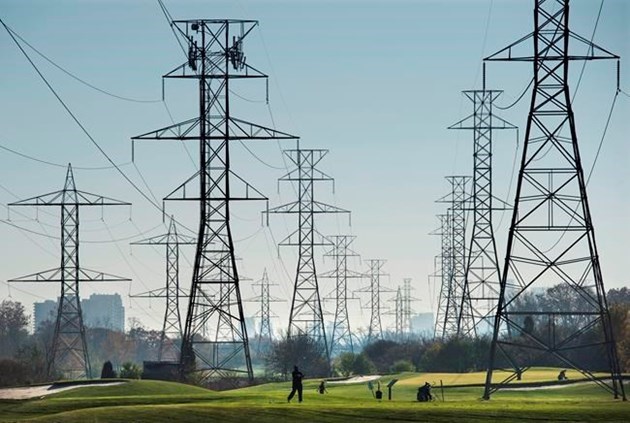Residents, businesses and industries in Thunder Bay are using considerably less electricity than they did a decade ago.
Data obtained by tbnewswatch.com shows that power consumption as measured by Thunder Bay Hydro totalled 937 million kilowatt hours last year, a decline of about 12 per cent since 2005.
Annual reports filed to the Ontario Energy Board (OEB) show that the general trend over that period has been a fall in electricity demand within all classes of Thunder Bay Hydro customers spanning from residential to larger industrial.
Tim Wilson, vice-president in charge of customer and information services for the utility, says hydro staff have also noted significant declines both in peak winter consumption and in peak summer consumption from 2007 to 2017. More analysis would need to be done, but Wilson said "we're curious to know if there is a correlation to things like codes and standards, conservation programs, and price, and I think our conclusion is that it's probably all those three factors that are driving consumption down."
Wilson said the Ontario government has made a concerted effort in recent years to get better standards in place "as to how we build homes, and devices that consume electricity within homes and businesses."
Those are things that would affect power consumption across the province, but in Thunder Bay's case there are other contributors to decreased demand: the flat growth in population and the closure of some major industrial customers such as mills and grain elevators.
"You go back into the late 90s and the early 2000s, we did have more large customers here, along the waterfront. Those just don't exist in that same number anymore," Wilson observed.
Interestingly, even though Hydro's residential customer base actually grew by about 1,000 customers between 2007 and 2015, the average consumption of electricity among all residential customers fell by 8%.
Wilson said third-party analysis has proven that conservation programs are a major component of the drop.
The negative impact on Thunder Bay Hydro's revenue poses challenges for budgeting and for running the utility, since the infrastructure still has to be maintained and upgraded.
"Because we're not growing...it forces us to be particularly careful about our costs," Mace said. "It does put added pressure on us, which is a good thing. We're proud of our results in that way, being the fourth lowest-cost distributor in the province right now."
He said Hydro's staffing level has remained relatively constant in recent years.
Just as they have been doing across Ontario, however, Thunder Bay Hydro continues to raise its rates periodically.
That is likely to happen this spring, as the utility currently has an application before the OEB for a residential rate increase of just under 1.6%, effective the beginning of May. For the average customer, the rate hike equates to $2.17 a month.
